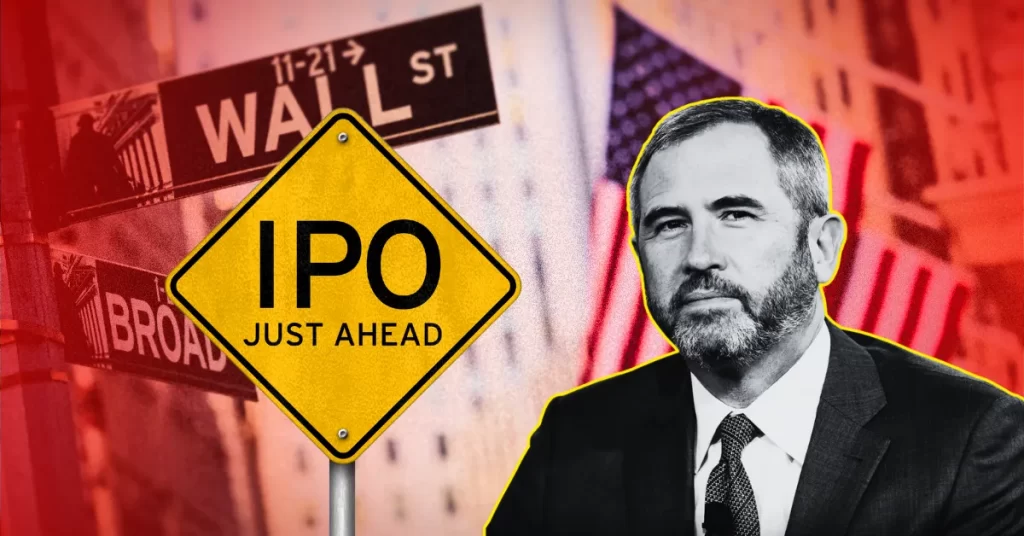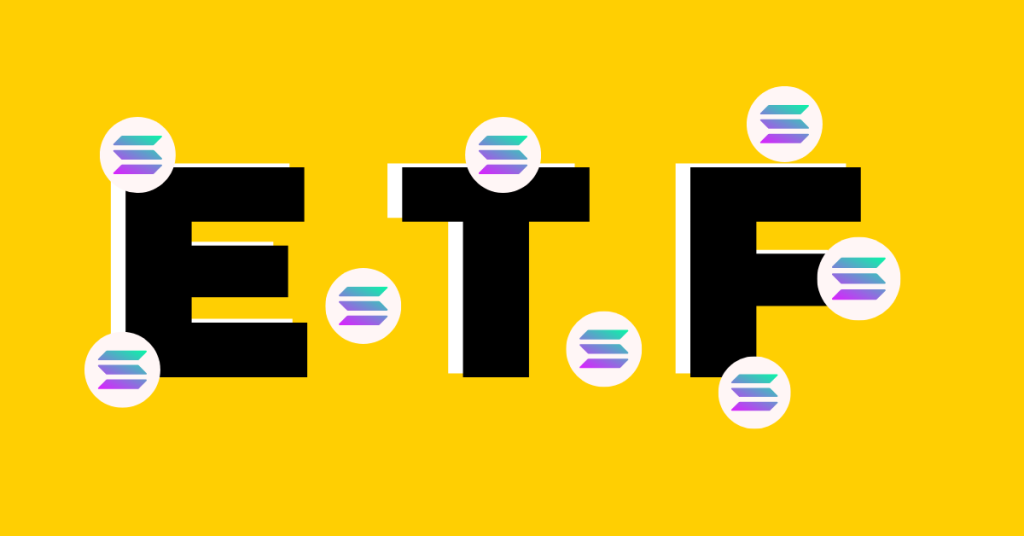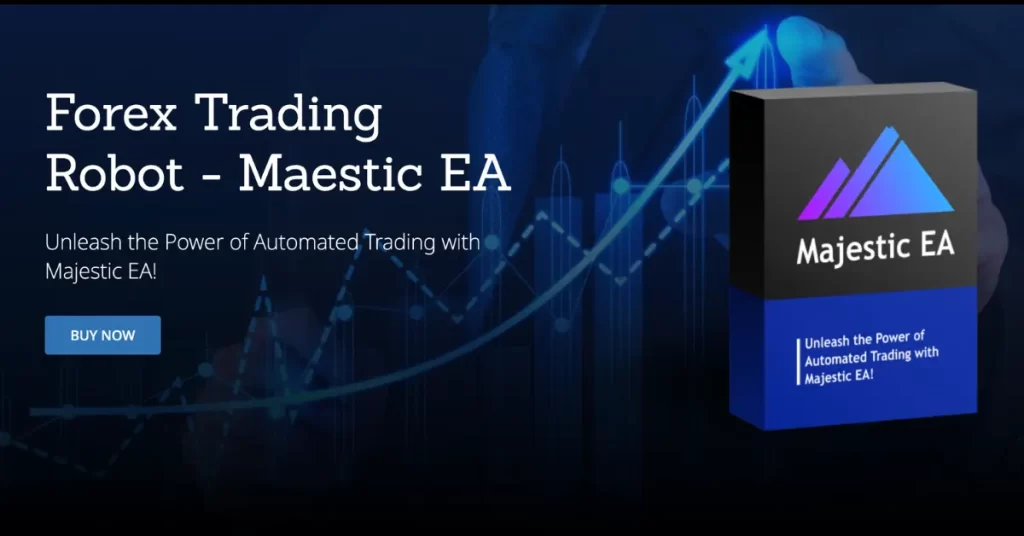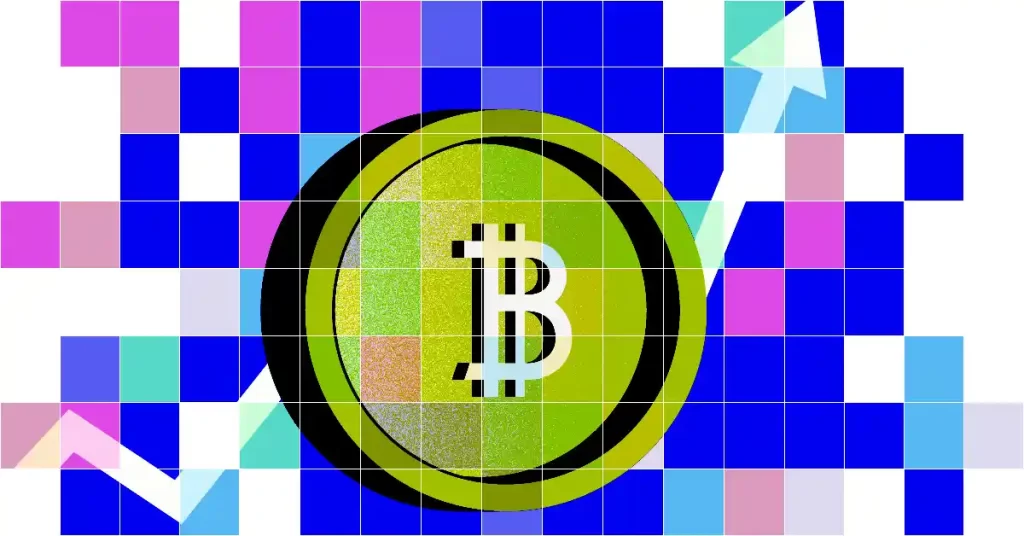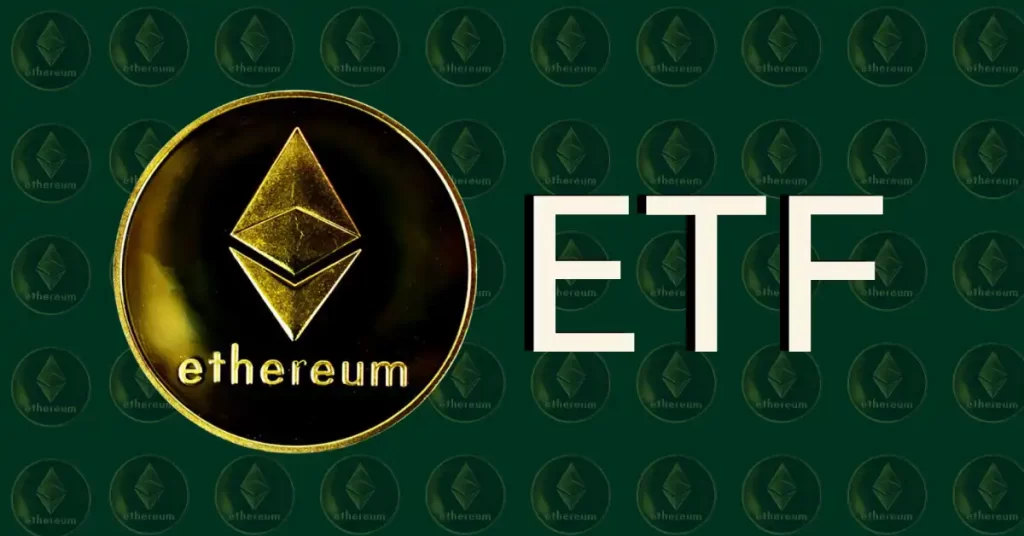2023-01-19 16:30:00
The SEC Is Coming For Crypto + Mike Fay's Top Token For 2023
Summary Our guest this week is Mike Fay, founder of BlockChain Reaction. In this episode, we get Mike's hot take on FTX, the recent rise in Bitcoin and crypto prices. We wrap up with Mike's big token investment idea for 2023. Editor's Note: This is the transcript version of the previously recorded show. D ue to time and audio constraints, transcription may not be perfect. We encourage you to listen to the podcast embedded above or on the go via Apple Podcasts . Click here to join Mike Fay's BlockChain Reaction on the Seeking Alpha Marketplace. Transcript Mike Fay: What we haven't seen with Gemini and Genesis in this instance is the SEC coming after them after they've already blown up. That's - if you're looking for consumer protection, that ain't it. Daniel Snyder: Welcome back to Investing Experts Podcast. I'm Daniel Snyder. In this episode, we're joined by Mike Fay, Founder of BlockChain Reaction, found on Seeking Alpha. For those of you who've been asking us to cover more of the crypto space, this episode is for you. We get Mike's hot take on FTX. The recent rise in Bitcoin ( BTC-USD ) and crypto prices and we wrap up with his big token investment idea for 2023. Just a reminder, anything you hear on this podcast should not be considered investment advice, at times myself or the guest my own positions in the securities or at times non-securities mentioned. But this is for entertainment purposes only and you should seek advice from a licensed professional before investing. If you enjoyed this episode, please do us a favor and leave a rating and review on your favorite podcasting app. Now let's get into the interview. Mike, how's it going? Mike Fay : That's going good. Thanks for having me. Daniel Snyder: So we like to kick things off. If you don't mind for those of people that don't know you, do you have like a one-minute overview of who you are, how you got into crypto investing, and then maybe what's going on in Seeking Alpha Marketplace service? Mike Fay : Yeah, yeah, I can see if I can do it in 60 seconds or less. I'm an analyst previously in media and took that kind of skill set that I felt I had an aptitude for and applied it to my own personal investing and felt that I could do it pretty well. So I started writing for Seeking Alpha in 2019, covering mainly media stocks and some of the gold stocks. I'm not a macro analyst. I wouldn't consider myself that, but I do try to pay attention of things like cost of credit and how that impacts the markets overall. Came into crypto in the 2017 cycle. I did not buy it in 2017. I waited until things kind of fell apart in 2018 to start scaling in. Really enjoyed the 2020, 2021 run up, and have felt that the space is very interesting similar to how maybe the tech bubble was in ’99, 2000. You're going to have a lot of things that are going to go crazy and be it based on purely hype, but when the wreckage happens, which is what we're dealing with now, out of that, you'll be able to find some things that are very useful. So I've covered some of those ideas. I've covered things that I don't like to try to help people steer away from those types of coins and ideas. But mainly, my focus at the moment is to provide BlockChain Reaction, which is a marketplace service with Seeking Alpha, where I try to provide my insights on the crypto assets and the crypto ideas that I do like and help people kind of have this second tech boom, I guess, after whatever crypto winter, how long it takes, we're in the depths of it at the moment. But that's mainly my background there. Daniel Snyder: So you're saying this is, like, the dot-com bubble time of crypto or the great financial crisis time of banks, is that kind of what you're saying here? Mike Fay : I think that we're in the - we're in a cycle a cyclical moment with crypto assets specifically that I think will be very - 20 years down the line, I think, it will be applicable to what people experience with dot-com bubble and finding Amazon ( AMZN ) at the floor, finding Apple ( AAPL ) at the floor names like that. Daniel Snyder: Interesting. So there's a lot for us to cover today. I mean, as we all know, 2022 is quite the year for crypto. But here we are at the beginning of 2023 January. Today is Wednesday, January 18th while we're recording this. And we've seen a recent kind of rise in the price of Bitcoin overall. And I know a lot of people turn to Bitcoin as the most well-known Bitcoin and Ethereum ( ETH-USD ). What do you attest to this? Do you think this is something that might continue? Mike Fay : I've actually been telling the BlockChain Reaction subscribers that I think that this is probably a rip to sell. I don't know that there is a fundamental purpose for this yet? I think that a lot of it is a bear market rally. Having said that, Bitcoin going underneath 15,000, going underneath 14,000 has become a bit of a consensus view. So it could be possible that the bottom is in. It's possible that it's not. I personally take the view that we're going to have one more leg lower, but I could certainly be wrong. I think what we've seen now is we've seen most of these assets have essentially retraced where they were following the FTX collapse. So right before FTX, Bitcoin and Ethereum looked very bullish. They had just broken out over their, I believe, 20-week moving averages, which is a metric that I've been focused on literally for two years. And they had - they were really favorable setups, FTX collapsed, everything fell apart. Those big, big declines have essentially been retraced on this rally, and now we're at those kind of resistance levels. Everything is getting very, very hot from an RSI perspective. And that's just the TA view. From a fundamental perspective, which is what I like to look at, we're seeing some things that are doing very well. Other things, maybe not so much, and they're just kind of getting caught up in the rally. Daniel Snyder: Yeah. It's still weird kind of state of the overall crypto environment, though. I mean, me and you were just talking yesterday prepping for this about what's going on with the SEC bringing charges against the crypto firms, Genesis, and Gemini. Could you maybe touch on that a little bit and what's happening right here in time and, like, what might be keeping investors out of the sector of the market? Mike Fay : Yeah. So Genesis is Gemini, Genesis, two different companies. They sound similar. It can be a bit confusing. Genesis is essentially a lending arm for Digital Currency Group, DCG. DCG owns many crypto businesses. Genesis is one of them. Gemini is a more consumer-focused crypto exchange. They also have an earning platform as well, where Gemini users can take their bitcoin or their ether whatever cryptos they have, lend them through Gemini's yield earning vehicle, and then Gemini takes those assets and does what they do with them. They loan them out, so that they can generate a yield for the consumer. Some of the Genesis - or excuse me, the Gemini assets that were customer assets were lent to Genesis, which then lent them on again. Genesis had a lot of exposure to not just FTX, but Three Arrows Capital, which is another firm that kind of blew up last year. So Genesis has had some serious liquidity problems. They've essentially been unable to pay back Gemini who has this obligation to their customers that they can now no longer pay. And you have essentially just another example of the centralized custodial-based approaches to crypto not working out because they're trying to do traditional finance things without kind of the traditional finance safeguards. And agencies like the SEC are supposed to be able to step in and put a stop to these things. They have done that effectively with some of them. People may forget that the SEC if threatened to sue Coinbase ( COIN ), I believe it was early 2021 when Coinbase wanted do a yield earning product similar to Celsius, similar to BlockFi, these companies that haven't made it. And the SEC before Coinbase has even been able to do that said, hold on. Don't do this. This is a security. And so because you're offering yield on assets, you're offering securities, and you haven't registered them as securities with us. So there's a history with the SEC coming after companies before they do it. There's a history with the SEC coming after companies after they do it. What we haven't seen with Gemini and Genesis, in this instance, is the SEC coming after them after they've already blown up. That's if - you're looking for consumer protection, that ain't it. But that's in a nutshell. What has been going on with Genesis, Gemini, because of this issue with Genesis, which again is owned by Digital Currency Group, you now have the contagion fears that other digital currency groups subsidiaries like Grayscale will somehow be impacted by this, and that's I think contributed to the NAV discount that we've seen in a lot of the Grayscale assets. Daniel Snyder: And that's kind of the dark cloud looming over the industry, right? And I think what was interesting to me while I was doing a little bit of research on this was Gemini is actually led by the Winklevoss twins, right? Aren't they the ones that sort of started in? You get 340,000 users that are now out $900 million of frozen assets. Mike Fay : Yep. Daniel Snyder: I mean, is this why you're diving into fundamentals and trying to figure out these tokens and where to go next? Because there's just like destruction. Mike Fay : I think that if there's any lesson that we have learned from this debacle aside from leverage, crypto assets already move ridiculously fast. You don't need leverage to take advantage of that. You're going to get a 20% move in some of these things overnight on occasion. So I think that the lesson is, aside from leverage, like I said, is these things are not supposed to live with custodians, right? They live on chain, public blockchain is supposed to take away the need for custodial permissioned systems. That's exactly why Bitcoin exists is because of this is Bitcoin came into existence as a result of the financial crisis. Banks blowing up, getting bailed out, being essentially in control of the currency. Crypto is supposed to be anti-custodial. And so when you buy Ethereum, if you're holding it on Coinbase, you're doing it wrong. Same with Bitcoin. You can get yield in DeFi protocol. DeFi held up very well. When Celsius blew up, when BlockFi blew up, Three Arrows Capital, not a yield generating thing, but Gemini can't pay back the customers. DeFi itself has done well. The problem with DeFi is that it's difficult for normal people to do it, but so is trading stocks, right? It's hard to find stocks that are actually fundamentally valuable, especially in an era of low interest rates. So the point is we have to learn from the mistake that we've learned throughout the existence of crypto, which is hold it yourself. To the extent that you can, hold it yourself, not your keys, not your coins. Daniel Snyder: Yeah. And so before we move on to your top token idea of 2023, since we're already talking about the blow ups that we've seen happened in FTX and everything, why don't you go ahead? What's the Mike hot take on the entire FTX action going on right now? Mike Fay : It's really confusing. The whole FTX thing is so wild because it involves politics. It involves Congress. Legislation is coming out of this. It seems you have the digital asset bill, which is by bipartisan, but has been championed by people like Elizabeth Warren, and I'm not going to get into politics. But if you look at that bill and you look at what's in it, you think, okay, this isn't really going to solve what was the reason for FTX, but FTX as an exchange, is interesting because it's not just one business, it's actually two. You had the international business. You had the U.S. business. Sam Bankman-Fried, who started FTX, claims that the U.S. business is fine and that it's solvent and that those customers could get their assets back overnight, okay? That's interesting. But the bigger issue is that, let's say, FTX U.S.’s whole. For some reason, we still had FTX international offshore doing things with customer assets, learning them to a related party that is obviously in a lot of trouble. And so the whole thing is just kind of a disaster. At the same time, you've got the CEO of the Exchange donating all of this money to political interests on both sides of the aisle, there's going to be callbacks because of that. So a lot of that money that has been donated to some of the politicians who have received it has been donated to charities because they - because the whole FTX thing is blown up, they're like, okay, this is dirty money, I guess, that I can't keep in my pocket. So I got to - give it to somebody who can do something nice with it. Great. But there's clawbacks. And that money belongs to somebody else. So I think that this FTX situation, I don't know how long it's going to take, but it's going to take a long time to sort all this out. I think that we will - we will see higher Bitcoin prices before, in my opinion. We'll see higher Bitcoin prices, higher Ethereum prices, long before the FTX saga is over. Daniel Snyder: So wouldn't investors then be worried if there is an increase in price and then legislation action comes in? I mean, when do you see the market react to that through this process like you're talking about? Mike Fay : It depends on what kind of regulatory result there is. And then this is actually the biggest risk in my mind for any of these things. Bitcoin is a proof of work consensus mechanism. So I don't know how you could justify claiming that it's a security Ethereum previously by the Clayton admin – Clayton, when he was in charge of the SEC. Ethereum was not a security, but now under Gensler, it might be. So these types of things I think definitely could be a problem. But when I say the regulations, I don't know - I guess what I mean is, like, the bankruptcy proceedings with FTX and the actual the flow of funds from, however, that plays out. We could get regulations for crypto long before that happens, and I think that we probably will. But regulations are concerned, could bitcoin be a criminal by decree, of course. That happened in Nigeria. Didn't work out well because half of the country still used it anyway. But anything is possible in this space. And it's always I say, if you're going to have an investment portfolio, a real investment portfolio, you want exposure to equities that actually have value, that have fundamental value, that are important products, preferably companies that pay a dividend. You probably want to have some exposure to historical inflation hedges: gold, silver, good? And then with what is remaining, your speculative stuff, tech stocks, crypto, it's fine for that. But there's a lot of risks still, of course. Daniel Snyder: So you went up, I just want to follow-up off of that because you say anything can happen in this space. You say that there's risk. So how do you approach risk management with positions you take or just what you're recommending to people within the crypto space? Mike Fay : Right. Great question. So my portfolio at the moment, I think, there's about 20 assets in it. The main five make up close to 92%, I think, of the of the portfolio. So everything else is very small, position-wise. I think the last top token idea that I shared at the end of December was like, a fourth of a percent or something like that. So these aren't large positions in a crypto portfolio that has 20 assets. I like Bitcoin. I like Ethereum. I think those are the blue chips of the space. And then from there, then when you go further out on the risk curve, you want to make smaller bets. And even with those smaller bets, you want to find things that actually solve some sort of a problem that have some sort of a network effect. The thing that I try to look at when I analyze these top token ideas is why does this have to be on the blockchain, right? Who benefits from this being on the blockchain, right? And so I think that there are, for example, I'll give one example. Rocket Pool, RPL token is a liquid staking protocol on Ethereum. It solves an actual problem. However, it's completely tied to Ethereum. So if Ethereum fails, RPL is done too, right? So knowing that the deeper you go into one specific ecosystem, the farther you - farther out you're going on the risk curve. And so from - if you're looking for alpha on some of those riskier things, then my service is probably going to be a great fit. If you really just want exposure to the blue chips, you don't really need me. You can probably just focus on Bitcoin, Health, and maybe a couple of others. Daniel Snyder: So let me ask you. We're talking about proof of stake, proof of work. If you kind of had to, like, just share off the top of your mind when you're researching all these different tokens, and you see proof of work or proof of stake, which one do you lean towards as being more safe at this moment in time? Mike Fay : I think from a regulatory perspective, proof of work is probably safer. I think it's easier to justify that the - it passes in a good way to how we test because it's not a sole issuer. With staking, you get a little bit more into the gray area there, especially because it's producing a yield generally. And so you have, I think, depending on if you have a large emission for token issuance, so a lot of these things like our proof of stake have very, very low circulating supplies, 15%, 25%, pretty common. That's really, really low. It's very inflationary. So the reason they have to be staked is because you want to - if you actually want a real yield, you have to have a really high staking reward that provides a real yield in addition to the rate of inflation of the token, right? So there's a legitimate expectation of a profit if your real yield calculation is actually positive. And since it's coming from generally a handful of entities, you could argue that it's closer to a security than something like proof of work. Having said that, mining a proof of work, coin, like Bitcoin, requires a really large initial investment. And when you're doing that, you have an expectation of profit as well. So there are certain things like how we test as a framework for deciding if something is security has served well in the past. Does it apply to digital assets? I think many would say yes. I'm actually not sold, but it does. But if we're judging everything through the how we test framework, then I think proof of work is probably a little bit safer from a regulatory standpoint. Daniel Snyder: Interesting take. I love that. Let's go ahead and transition though because we got to dive into your top token idea of 2023. I think that's what everybody's talking about right now. So what's your top idea? Why does it make sense to you? What's the advantages of it? Why don't you just give us the rundown? Mike Fay : Sure. Okay. So my top idea for this year is MATIC Polygon. It is a level two scaling blockchain built on Ethereum. They had a great run last year already. So a lot of people I think in the space think it's already had its move, and that's possible. But what I think is interesting about Polygon is for an industry that is supposed to be decentralized, Polygon is actually very centralized. And the reason why it is is because it is really marketed as, like, an enterprise solution, which is why you've had companies like Starbucks use it. You've had companies like Reddit use it. So what has been able to happen with Polygon is people are buying NFTs without realizing that they're NFTs, right? And that's really the whole - that that's the killer catalyst with public blockchain is when you can get people to use it without realizing that they're using it. Trump just did this. He just did his NFT thing. He used Polygon for that, right? So Polygon, in my view, is a great bet because I think that even if you have a broad crypto winter, because this is a blockchain that is serving real businesses like Starbucks or Reddit. Disney had it in its accelerator program last year. Because you have this one chain that is actually serving real businesses outside of the crypto space, I think, you have a level of support here that means the floor is a little bit lower than maybe some of the other or a little higher, excuse me, a little - the floor were closer to it than some of the other assets. And specifically, because it's building on Ethereum, I think that 2021, 2022 to a degree was very much about the ease killer, right? Because there's so many problems with Ethereum. If you think about the blockchain dilemma, the Ethereum problem is scalability, right? It has security, it doesn't have scalability. So you need other ways to scale the chain. And we've seen that the L2 is the layer 2 scaling chains like Polygon ( MATIC-USD ), Arbitrum, Optimism ( OP-USD ). These are growing faster than all of the competing L1 chains. Avalanche ( AVAX-USD ), looks like it peaked. Solana ( SOL-USD ), huge problems there. Aptos ( APT-USD ), we'll find out it's a newer one. Some of the early stuff looks good, but it's very investor heavy, very VC heavy. Generally, people on crypto try to avoid that kind of stuff. And I would say that that's probably a wise thing to do. So MATIC, Polygon, to me, scales Ethereum. It provides value to Ethereum, it does the things that you would like to see a public blockchain do if you believe that public blockchain has a future, which is namely onboard in real life businesses. Daniel Snyder: Now let's rewind a second and I'm on a link to the article and the show notes for everybody that you did a great job breaking down the Starbucks utilization of how they're going to use Polygon, but Reddit was another big name. I mean, these are big company names, right? Maybe you can just, for the people that are listening right now, breakdown, what did Reddit do in order to make their NFT, but not NFT kind of work with Polygon? Mike Fay : The Reddit project with Polygon is really interesting because it uses profile pictures, right? And any social media platform has a profile picture, I actually just changed mine on Twitter the other day. If you use any social media, if you have a picture of yourself, that's great. But a lot of times, you don't have a picture of yourself, you have something else. And these are just basically called avatars, right? And so we've seen in the gaming community, we've seen in some of the social media channels that people generally don't like NFTs. They see them as scammy. They see them as money grabs. But if you name them something else, instead of sell - selling the NFT - as an NFT, if you sell it as an avatar picture that's exclusive that can't be duplicated and that you own. Suddenly, it's okay. And so what happened was Reddit was able to onboard millions, literally millions of people by selling these avatars on the blockchain that are fundamentally NFTs. And people were fine with it. They liked it. They liked to collect them. And what's interesting is in a lot of other NFT projects on Ethereum or Algorand ( ALGO-USD ) or any other way or one chain, oftentimes, you see a lot of people buy up a ton of them because they're speculating and they want to try to bet on other people wanting the avatars. And that really hasn't won the case with Reddit. You have a very high degree of unique buyers. So people are buying these to actually use them. And not only is it a validation of utility of public blockchain, but it's interesting because it might validate avatar NFTs, too, which is something that I'm personally not that high on, but it's working for Polygon. And I think that it's a very primitive use for a public blockchain, but it can lead to other things. It can lead to domains. It can lead to certifying real goods and assets. So it's important. Daniel Snyder: No, Mike, I got to say, I hear from people that are cautious in regards to tokens, especially after the FTX, all of me to blow up, right? Like, they were just printing tokens whenever they wanted tokens. What makes MATIC different from this unlimited token extravaganza? Mike Fay : Well, MATIC is actually one that has a limited supply and it's actually fairly close to that circulating. The circulating supply is very close to the max supply. So what you'll have is you'll have ultimately, you'll have a - if MATIC is continued to be needed as a chain, just to pay the gas fees, the transaction costs, a price that organically should rise over time. And it doesn't have to be a super hype-driven rise where it goes up 50% in a week. That's not sustainable and that's not good. But if the chain has utility and MATIC Polygon does because it's inexpensive to use, it's easily been positioned as the enterprise solution of choice, there's nothing stopping anyone from making another social media platform. There's nothing stopping anyone from making another Netflix ( NFLX ), right? But the reason why these companies survive is because they have network effects. They have some sort of IP maybe or they have some sort of relationship, something that differentiates them. And for Polygon, I think, it stands the test of time because a lot of these other competing chains that can just kind of be created out of nowhere, they lack that that relationship, right? They lack that that ability to appeal to somebody in a C-suite and say, “Hey, I can do this for you.” Daniel Snyder: So let's rewind it as well back to because you mentioned Polygon is within the Disney Accelerator program for this go around. Have you thought about, like, what you're kind of possibly expecting the results of that being? Because, I mean, you look at the companies that have been in that program before, whether it's Unity or whoever else. I mean, they usually team up with those companies for the long-term. Mike Fay : They tried to. And that's the end game, I think, for Disney. At minimum, I think you see digital collectibles of some sort. So Anna and Elsa NFTs, right? Maybe they're - they do some sort of digital collectible as an image or as an accessory. Maybe they do something with GamFi, which is something that I think people think that blockchain could potentially be useful in. It's funny because I actually asked Ethan Buchman, who's the Co-founder of Cosmos. I asked him from the perspective of a skeptic, what is public blockchain used for? What do you even do with it? Why do you need it? And he's basically made the case that it's the same thing as the Internet, right? People didn't even know what e-mail was 20 years ago, 25 years ago, really. So when I say as a base case, digital collectibles for Disney, I think that's true, but ultimately, they could do a number of things. They could literally sell media on the public blockchain if that's what they ended up wanting to do. Daniel Snyder: Interesting. So I just want to make sure we clarify for the listener. When it comes to this Polygon, this is your top token idea for 2023. So this is a long-term investment for you within this space, correct? Mike Fay : Absolutely. Daniel Snyder: And then to follow that up, what would be the risk management, in particular, for this position going forward? Mike Fay : I think if it ends up becoming more valuable than something like EVE or Bitcoin, you need to take some off, right? I don't think you want it to be the biggest position in your portfolio. it could be. It depends on what your personal risk tolerance is, right? For me, if I feel like it's at a maturity from how it can be used, then I'm looking to take some off. But the other thing, too, to consider is that Polygon works great right now, but it may not be as necessary in 5 to 10 years if Ethereum actually can do things to the native chain to scale itself. But that doesn't necessarily mean that Polygon goes away. It just might mean that polygon is done growing. Because what happens between these two chains is you have to bridge from one to the other. So if I were to make an NFT on Polygon, and I wanted to move it to Ethereum, I would have to pay a gas fee to do that. And you get to a point where it's not economically viable to do that. So, so long as Polygon continues to grow, I think it's a great investment. If it stops growing, takes them off. If it gets too big, takes them off. That's kind of how I see the exit strategy. Daniel Snyder: But we'll definitely keep an eye on that within your service. Mike, I can't thank you enough, man. Thank you so much for the time today. Breaking down the top token idea that you've brought for the year. I can't wait to follow-up with you. Maybe here in six months or whenever we have you on next to see how it's doing, see your updated response about the utility aspect of it. Before we get out of here, where can people find you and stay in touch with you and just learn more? Mike Fay : Of course, thanks again for having me. I'm on Twitter and my handle is really simple. It's just faybomb, F-A-Y-B-O-M-B, college nickname. I didn't give it myself thrown at me. And then, obviously, on Seeking Alpha. I'm Mike Fay on Seeking Alpha, my professional name there. And I post a lot about crypto on Seeking Alpha publicly as well. You're probably going to find the stuff that I don't think are great investments on the public site. But I do cover other things. I cover stocks. I cover media. I do still write about precious metal. And then, of course, BlockChain Reaction is the marketplace service. In that service, I'm going to share the occasional trade alert, which have been phenomenal. I'm - I don't want to toot my own horn, but I get myself a pat on the back to the trade alerts have all done very well. And then the top ideas. I try to provide two top ideas every month. These are things that I think are long-term holds that I want to see how they mature. So things like MATIC, right? And that's really, I think, the focal sell of the service is these top ideas. If you're a serious investor, who wants to look at crypto, I think BlockChain Reaction is a great service for you to consider. And as, of course, there's a chat in there as well. So you can talk to me, you can reach out, you can ask me questions directly or in the group, and I'm very open to talking. Daniel Snyder: That's awesome. Mike, thank you so much once again. Really appreciate it. And like I said, we're all going to keep an eye on Polygon. So now the pressure is on, my friend. So we'll take… Mike Fay : Thanks again for having me. Daniel Snyder: No worries. You take care. We'll talk again soon. Just a reminder, everyone, if you enjoyed this episode, leave a rating or a view on your favorite podcasting app. And we'll see you again next week with a new episode and a new guest. We encourage you to listen to the podcast embedded above or on the go via Apple Podcasts . Click here to join Mike Fay's BlockChain Reaction on the Seeking Alpha Marketplace.

